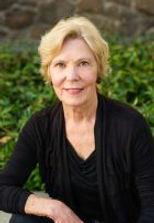
mindpracthing.com
Cultivating Mindfulness & Meditation In 12 Step Recovery
"The tenets of trickle-down economics—tax cuts for the rich, deregulation for the powerful, and wage suppression for you—have turned economic inequality into the defining issue of our time."
Economics affects how we live and how happy we are. Yet most people ignore economics even though it has a powerful impact on our lives and our future. Take our two biggest worldwide challenges: global warming and income inequality. United Nations climate scientists warn that time is running out if we are to avoid destroying our planet and our way of life. Both of these challenges are profoundly influenced by economics. Overcoming them will require a complete rethinking of our economic system, our lives, and what matters to us.
I have been an economist at the University of California, Berkeley, for a lifetime and a Buddhist for a decade. As a professor of economics and a student of Buddhism, I have been grappling for some time now with the troubling disconnect between free market economics and the issues of the real world. In an era marked by vast economic disparities and the threat of environmental collapse, with opulent living for a few, comfortable living for many, and deprivation with suffering for most, something is clearly wrong.
What would a Buddhist approach to economics, in which people are regarded as more important than output and a meaningful life is prized above a lavish lifestyle, look like? As a Buddhist and an economics professor, I have joined the chorus of economists asking whether there is an alternative to an economy ruled by desire and ill equipped to address the challenges of environmental deterioration, inequality, and personal suffering.
What makes people happy? This question takes us to the heart of the difference between free market economics and Buddhist economics: our human nature. According to Buddhist economics, human nature is generous and altruistic, even as it also cares about itself. Buddha taught that all people suffer from their own mental states, with feelings of discontent that come from desiring more and more. The Dalai Lama tells us that the feeling of not having enough and wanting more does not arise from the inherent desirability of the objects we are seeking, but from our own mental illusions. Buddha taught us how to end suffering by changing our states of mind, which translates into finding happiness through living a meaningful life.
Free market economics holds that human nature is self-centered and that people care only about themselves as they push ahead to maximize their incomes and fancy lifestyles. According to this approach, buying and consuming—shopping for new shoes or playing a new video game—will make you happy. Forget that soon you will grow tired of the shoes, become disappointed with the game, and be off shopping again. In this endless cycle of desire, we are continuously left wanting more without ever finding lasting satisfaction. Free market economics is not guiding us toward living meaningful lives in a healthy world, nor is it offering solutions to our concerns about global wars, income equality, and environmental threats.
Buddhist economics, in contrast, provides guidance for restructuring both our individual lives and the economy to create a better world. “Practice compassion to be happy” replaces “More is better.” “Everyone’s well-being is connected” replaces “Maximize your own position.” “The welfare of humans and Nature is interdependent” replaces “Pollution is a social cost that the individual can ignore.”

